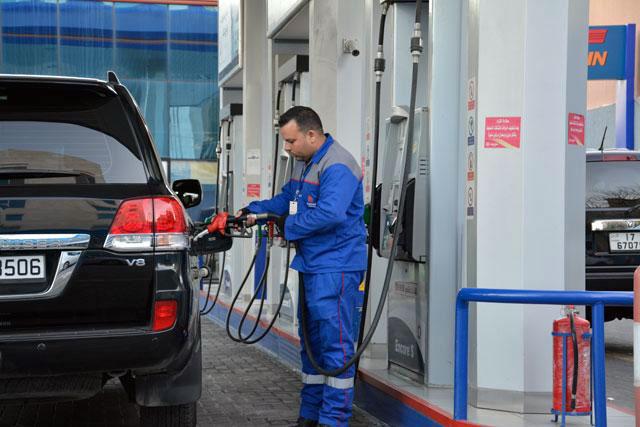You are here
Government raises fuel prices
By JT - Apr 01,2019 - Last updated at Apr 01,2019
AMMAN — The government’s fuel pricing committee on Sunday decided to raise the prices of gasoline and diesel for April.
According to the committee’s decision, the price of 1 litre of unleaded 90-octane gasoline will go up from JD0.720per litre in March to JD0.750 in April, according to an Energy Ministry statement.
The price per litre of unleaded 95-octane gasoline will rise to JD1 in April, compared with JD0.940 the month before.
The price of diesel per litre will increase to JD0.610, compared with JD0.600 in March.
The panel maintained the price of 1 litre of kerosene at JD0.560.
The Cabinet in December 2018 decided to keep the price of kerosene unchanged for the first four months of 2019.
However, the December decision stipulates that if global prices go down the panel will lower the price of kerosene accordingly.
According to the statement, the Cabinet’s decision recognises the importance of kerosene fuel for citizens in winter, especially for low-income households who use it to keep warm during the season.
Regarding the price hikes on other fuels, the committee said that the price per barrel of crude Brent oil increased to $66.1 in March, from $64 in February.
The panel said the price of gas cylinders will remain unchanged at JD7 despite an increase in international rates to JD8.6.
The committee attributed their decision to not raise the price of gas cylinders to the government’s attempts to help mitigate the burdens of the low-income citizens in light of the current economic situation.
Prices of oil derivatives in the local market are calculated based on international prices, plus other costs including shipping and taxes.
The Energy and Minerals Regulatory Commission on Sunday also decided to maintain the “differences in fuel prices” category on monthly electricity bills for April at 10 fils per kilowatt-hour (kWh), according to a commission statement.
The “differences in fuel prices” category excludes households whose monthly consumption does not exceed 300kWh.
Related Articles
AMMAN — Following instructions from the Cabinet, the government’s fuel pricing committee on Friday decided to maintain the current price of
AMMAN — The government’s fuel pricing committee on Thursday decided to raise the prices of gasoline and diesel for March.According to the co
AMMAN — The government’s fuel pricing committee on Saturday decided to raise the prices of unleaded 90 and 95 octane gasoline in December.Wi













